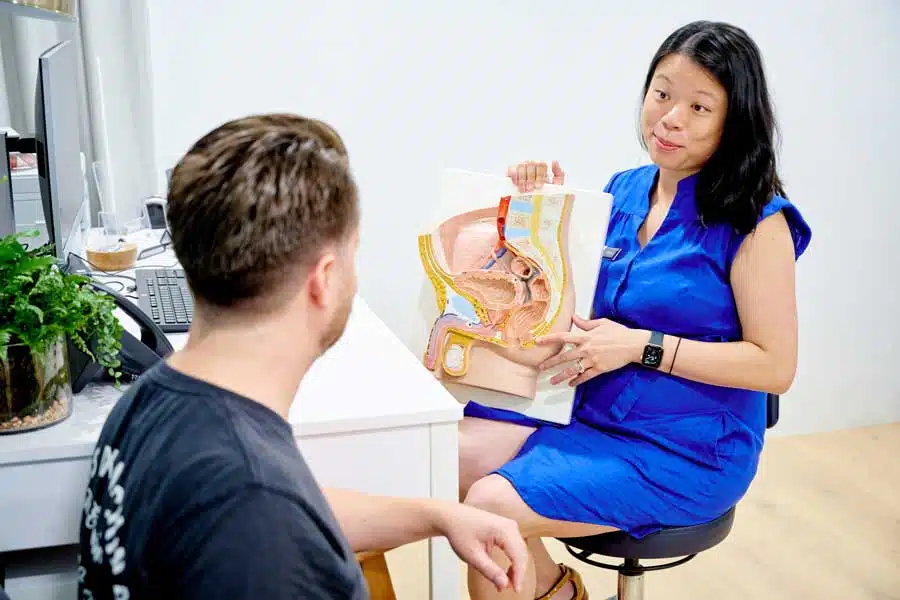Incontinence is a widespread condition that ranges in severity from just a small leak to a complete loss of bladder or bowel control. Incontinence affects one in three Australians and has a detrimental effect on quality of life, confidence and longer-term commitment to physical activity. To look even further ahead, it is one of the most common reasons for admission into aged care.
The good news is, incontinence can be very well managed, and in most cases, completely overcome with conservative management. Education, pelvic floor muscle training and good bladder and bowel habits are cornerstones in such management.
At Sydney Pelvic Clinic our highly trained pelvic physiotherapists will help identify what type of incontinence you have, and provide a specific, individualised and evidence-based management plan to help you overcome such symptoms.
Urinary Incontinence:
There are 3 main types of urinary incontinence:
1. Stress Urinary Incontinence
Stress Urinary Incontinence is when urine leakage occurs with activities that increase pressure in the abdomen and push down on the bladder, ie coughing, sneezing, laughing, and jumping. Stress urinary incontinence is often due to weakness and/or stretch of the pelvic floor muscles. In women, it is often associated with pregnancy, vaginal delivery and menopause. Stress urinary incontinence is also prevalent in athletic women, particularly women involved in high impact sports due to the load such sports place on the pelvic floor muscles.
The good news is, pelvic floor muscle training has level 1A (highest possible) evidence in treating stress urinary incontinence. It is imperative that the pelvic floor muscle exercises are performed correctly and consistently to achieve this result. Studies have shown that a mere 30% of people perform a pelvic floor muscle contraction correctly with verbal instructions alone. At Sydney Pelvic Clinic, we will assess your pelvic floor muscle function through Real Time Ultrasound or vaginal assessment. Your physiotherapist will help you understand which assessment is most appropriate for you, and prescribe a specific program for you to overcome your stress urinary incontinence.
2. Urge Incontinence
Urge Incontinence is a sudden and strong urge to urinate. It is often with small bladder volumes, and can sometimes be referred to as an Overactive Bladder. Urge incontinence can be associated with leaking on the way to the toilet, but not always. The mechanism behind urge incontinence is more complicated then stress urinary incontinence, but a combination of pelvic floor muscle exercises (and not always strength exercises), bladder and brain retraining is effective in regaining control over the bladder. In some cases we may prescribe the use of TENS, which may assist in reducing the urgency symptoms by neuromodulation to sacral nerve roots which supplies the bladder. Your pelvic physiotherapist will best guide you on the most appropriate management plan for you.
3. Overflow Incontinence
Overflow Incontinence is when the bladder is unable to empty properly and frequent leakage of small amounts of urine occurs as a result. Signs of Overflow Incontinence can be straining to urinate, slow urine stream/flow, regular urinary tract infection or urinary frequency. It is important to identify the reason behind Overflow Incontinence in order to manage it. Such reasons can be pelvic organ prolapse, tight pelvic floor muscles, poor bladder emptying techniques and some medications. Your physiotherapist will work with you to identify why you may have overflow incontinence and determine the most effective management to overcome it.
